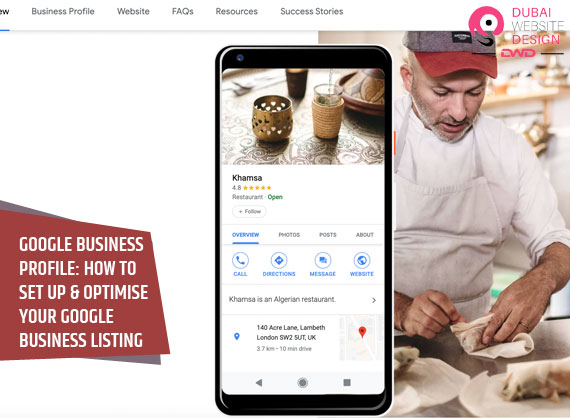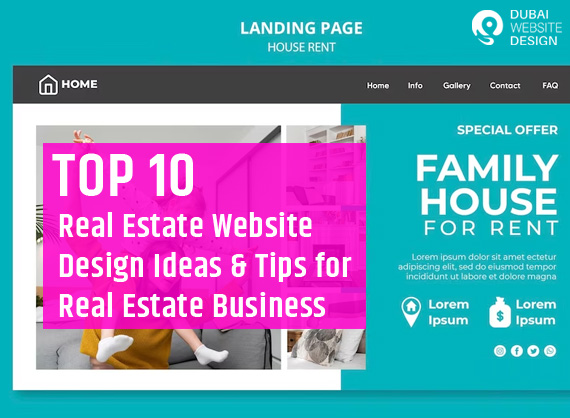Introduction to Google My Business Optimizations
Optimizing your Google Business Profile is crucial for enhancing local visibility and attracting potential customers. Google My Business (GMB) is a powerful tool that allows businesses, including web design companies and SEO companies, to manage their online presence and connect with local customers directly in Google Search and Maps. Here are 13 effective Google My Business optimization to help you rank higher in local search results.
1. Complete Your Business Profile
Start by completing all sections of your Google My Business profile. Provide accurate and up-to-date information such as business name, address, phone number (NAP), website URL, business hours, and categories. A complete profile helps Google understand your business and improves your chances of appearing in relevant local searches.
2. Verify Your Business
Verification is essential to gain full control and access to your Google My Business listing. Follow Google's verification process, which may include receiving a verification code via mail, phone, or email. Once verified, you can manage and update your business information, respond to reviews, and engage with customers effectively.
3. Optimize Business Description
Craft a compelling business description that accurately reflects your services, products, and unique selling propositions (USPs). Use relevant keywords naturally within your description to improve visibility for local search queries related to web design company and SEO company services.
4. Choose the Right Categories
Select relevant categories that best describe your business. Categories help Google understand your business's nature and match your listing with relevant search queries. Choose primary and secondary categories that accurately represent your services, such as "Web Design Company" and "SEO Company," to attract targeted local traffic.
5. Upload High-Quality Photos and Videos
Visual content plays a significant role in attracting customers. Upload high-quality photos of your office, team, completed projects, and products/services. Include videos that showcase your services or customer testimonials. Visual content not only enhances your GMB profile but also increases engagement and credibility.
6. Monitor and Respond to Reviews
Customer reviews influence your business's reputation and local search rankings. Encourage satisfied customers to leave positive reviews on your Google My Business profile. Promptly respond to reviews, both positive and negative, to demonstrate excellent customer service and address customer feedback professionally.
7. Utilize Google Posts
Google Posts allow you to share updates, promotions, events, and news directly on your Google My Business listing. Take advantage of Google Posts to keep your audience informed and engaged. Use compelling visuals, clear calls to action (CTAs), and relevant keywords to attract attention and drive conversions.
8. Enable Messaging
Enable messaging to facilitate direct communication with potential customers through your Google My Business profile. Respond promptly to inquiries and provide helpful information about your services, pricing, and availability. Timely responses can enhance customer satisfaction and encourage conversions.
9. Add Services and Products
If applicable, showcase your services and products within your Google My Business listing. Provide detailed descriptions, pricing information, and high-quality images to attract local customers searching for specific services offered by your web design company or SEO company.
10. Optimize for Local SEO
Optimize your Google My Business profile for local SEO by including location-specific keywords in your business description, posts, and reviews. Ensure your NAP information is consistent across all online platforms. Local SEO optimization increases your visibility in local search results and drives foot traffic to your business.
11. Monitor Insights and Analytics
Regularly monitor insights and analytics provided by Google My Business. Gain valuable data on how customers find your business, what actions they take, and where they are located. Use this information to refine your marketing strategies, identify trends, and optimize your Google My Business optimizations further.
12. Encourage User Engagement
Engage with your audience actively through Google My Business. Encourage customers to ask questions, leave reviews, and interact with your posts. Foster a positive online community around your business, which can lead to increased visibility and trust among local customers.
13. Stay Updated with New Features
Stay informed about new features and updates rolled out by Google My Business. Google frequently introduces enhancements to improve user experience and provide businesses with more tools for local marketing. Embrace new features such as messaging improvements, booking integrations, and enhanced analytics to stay ahead of the competition.
Conclusion
Optimizing your Google My Business profile is essential for web design companies, SEO companies, and other businesses aiming to enhance local visibility and attract targeted customers. By implementing these 13 Google My Business optimizations, you can improve your local search rankings, increase customer engagement, and drive more traffic to your business. Regularly update your profile, monitor performance metrics, and respond to customer interactions to maintain a strong online presence and achieve business growth.



